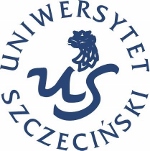Studies and researches
Vol. 14 Issue 2 - 12/2022
Quantification of Economic, Ecological and Social Impacts of Climate Change in the EU
The article focuses on the current, urgent, and much discussed
global issue of climate change, the impacts of which are expansive and involve
a wide range of expertise. The base forms the evaluation of a sample of
European Union member states using the quantification of threats and intensity
of two key factors. The main objective of this article is to evaluate EU
countries the INFORM assessment tool and to highlight the link between the
effects of climate change (environmental, social, and economical) as quantified
by respective threats posed by emission volume and poverty. In the present
research, we relied on the new INFORM Risk Index assessment indicator because
it represents a completely new but also globally applicable, reliable, and
transparent tool to understand the risk of humanitarian crises and disasters.
The significant results of the performed quantitative analysis suggest that
security risk, poverty, and pollution levels operate as closely linked areas.
It can be expected that recent changes (the COVID-19 pandemic, state of war)
will mean that these influences will increase in severity.
Read more
Keywords:
climate change, environment, national economy, poverty, emissions
JEL:
F01, Q56, Q01
climate change, environment, national economy, poverty, emissions
JEL:
F01, Q56, Q01














